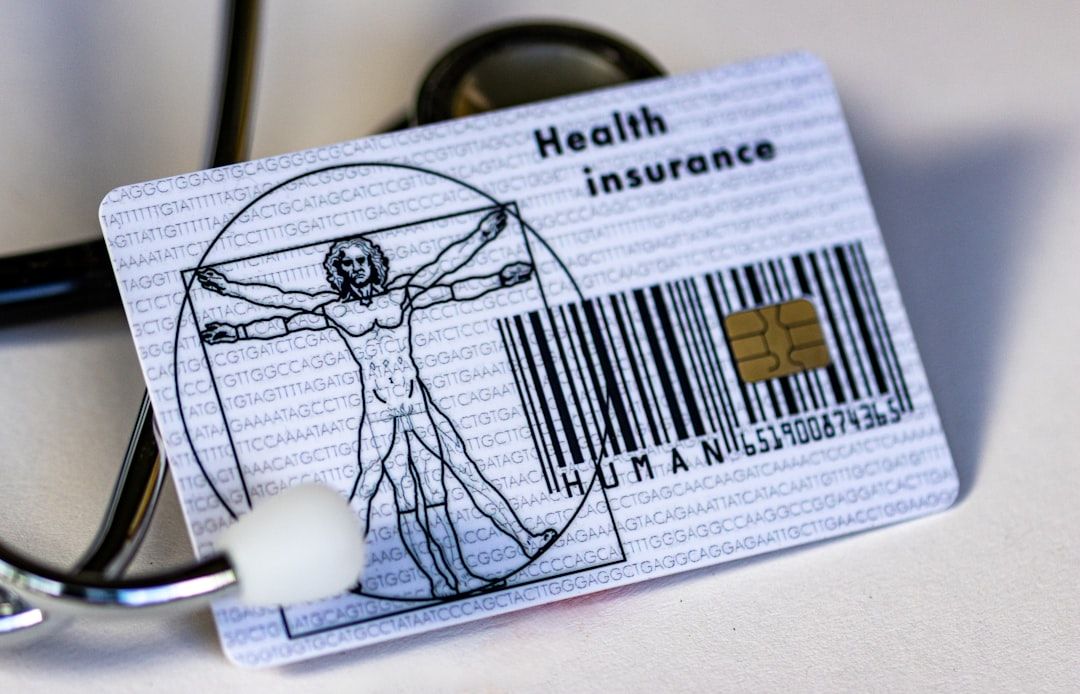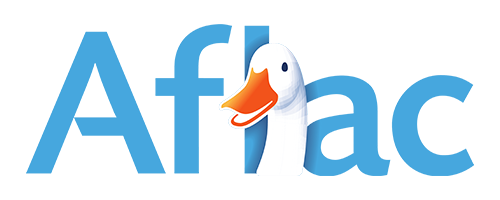Finding the Best Medicare Dental Coverage in Colorado
Understanding Medicare Dental Coverage in Colorado

Medicare dental plans Colorado options fall into three main categories:
- Original Medicare (Parts A & B)- Covers dental ONLY when medically necessary (hospital procedures, pre-transplant care)
- Medicare Advantage Plans- Many include dental benefits with annual allowances of $1,000-$2,500
- Standalone Dental Plans- Additional coverage options for those with Original Medicare
If you're searching for dental coverage with Medicare in Colorado, it's important to understand that Original Medicare does not cover routine dental care such as cleanings, fillings, extractions, or dentures. You'll need either a Medicare Advantage plan with dental benefits or a separate dental insurance policy.
Navigating Medicare dental options can feel overwhelming. While Original Medicare provides excellent hospital and medical coverage, it leaves a significant gap when it comes to dental care. This gap can be particularly concerning for seniors, as dental health is closely linked to overall wellness and quality of life.
Many Colorado residents are surprised to learn that without supplemental coverage, they'll pay 100% out-of-pocket for routine dental services under Original Medicare. This can quickly become expensive, with procedures like crowns potentially costing $1,000 or more.
Fortunately, there are several options available to Colorado seniors seeking dental coverage. Medicare Advantage plans (Part C) often include dental benefits as part of their comprehensive packages. These plans, offered by private insurance companies, combine Original Medicare coverage with additional benefits like dental, vision, and hearing care.
I'm Kelsey Mackley, an insurance specialist at Kelmeg & Associates, Inc., where I've helped countless Colorado seniors steer the complexities of Medicare dental plans Colorado to find coverage that meets their unique needs and budgets. My experience has shown that understanding the differences between plan options is crucial for making informed decisions about your healthcare coverage.

Original Medicare vs. Medicare Advantage Dental Coverage in Colorado
When I sit down with Colorado seniors to review their Medicare options, there's often a moment of surprise when we discuss dental coverage. Many folks assume Original Medicare will take care of their teeth just like it handles their medical needs. Unfortunately, that's not quite how it works.
Original Medicare (Parts A and B) focuses primarily on hospital care and medical services, leaving routine dental care largely uncovered. This means without additional coverage, you'll be reaching into your own pocket for cleanings, fillings, and other dental work that keeps your smile healthy.
This gap in coverage matters more than many realize. Recent scientific research has established strong connections between oral health and serious chronic conditions like diabetes, heart disease, and respiratory problems. Good dental care isn't just about a bright smile—it's an important part of your overall health picture.
When does Original Medicare ever pay for dental?
While Original Medicare generally doesn't cover routine dental care, there are a few specific situations where your Medicare benefits might kick in:
Inpatient oral surgery may be covered under Part A if it's required during a hospital stay. For example, if you're hospitalized with a jaw fracture that requires both medical and dental treatment, Medicare may cover the dental portion as part of your overall care.
Pre-transplant dental exams are covered when you're preparing for a kidney transplant or heart valve replacement. Medicare recognizes that dental infections could complicate these serious procedures, so they'll pay for dental work needed to ensure a successful transplant.
Cancer-related dental services might be covered if you're undergoing treatments that affect your oral health. For instance, if you need teeth extracted before radiation therapy for oral cancer, Medicare may cover this procedure.
In these limited scenarios, you'll typically pay your standard Part A deductible ($1,632 in 2024) for hospital stays, or 20% of the Medicare-approved amount under Part B for outpatient services.
Medicare Advantage supplements that fill the gap
This is where Medicare Advantage dental plans Colorado options really shine. These plans typically include dental benefits that Original Medicare doesn't cover, helping to fill this significant gap in care.
Most Medicare Advantage plans in Colorado cover preventive cleanings and exams at 100% with no copay when you visit an in-network dentist. These $0 preventive services typically include routine cleanings, exams, and X-rays twice per year—keeping your smile healthy without straining your budget.
Beyond the basics, many plans cover fillings and simple extractions at around 70-80% of the cost. More comprehensive options extend to major services like crowns, dentures, and even root canals, usually covering about 50% of these bigger-ticket items.
The annual allowances for dental care in Colorado Medicare Advantage plans typically range from $1,000 to $2,500 depending on the plan you choose. This means you'll have a set amount to spend on covered dental services throughout the year.
What I find particularly helpful for many of my clients at Kelmeg & Associates is that these dental benefits come bundled with their medical coverage—one card, one premium, and one insurance company to deal with. This simplicity makes managing your healthcare much easier, especially when you're juggling multiple doctors and health concerns.
When we sit down to review your options, we'll look at your specific dental needs, your preferred dentists, and your budget to find the Medicare dental plans Colorado option that gives you the right balance of coverage and cost.
Top Medicare Advantage Dental Plan Types in Colorado
When exploring Medicare dental plans Colorado options, you'll find several plan types, each with unique features and benefits. It's a bit like choosing between a buffet or a la carte dining – both can satisfy your hunger, but in different ways.
PPO vs. HMO Dental Networks
The dental network type makes a big difference in how you'll access care. Think of it as choosing between flexibility and structure:
With PPO dental networks, you get more freedom to choose your dentist. You can visit providers both in and out of network, though your wallet will thank you for staying in-network – typically saving 25% to 32% on covered services. Many Colorado seniors appreciate that some PPO networks include nearly 1,500 dentists across the state, making it easier to find care close to home or even keep your current dentist.
HMO dental networks, on the other hand, work more like having a dental "home base." You'll select a primary care dentist who coordinates your care and provides referrals when you need to see specialists. While this approach is more structured, the trade-off often comes in the form of lower out-of-pocket costs and sometimes more comprehensive coverage for certain procedures.
Annual Allowance vs. Service-Based Coverage
Medicare Advantage dental benefits in Colorado typically offer coverage in one of two ways:
Some plans provide what I like to call a "dental debit card" approach – giving you a set annual allowance ($1,000, $1,500, or $2,000) to spend on dental services throughout the year. Once that allowance is spent, additional costs come out of your pocket. This can work well if you have predictable dental needs.
Other plans use a service-based approach, covering different percentages based on the type of service. Preventive care like cleanings and exams might be covered at 100%, while basic services like fillings might be covered at 70-80%, and major services like crowns typically at 50%. This tiered approach can be beneficial if you anticipate needing more extensive dental work.
Embedded Benefits vs. Optional Riders
Some Medicare Advantage plans include dental coverage as a standard feature – what we call "embedded benefits." Others offer dental as an optional add-on or "rider" for an additional premium. At Kelmeg & Associates, we often help clients do the math to determine which approach makes more financial sense based on their expected dental needs.

Sample medicare dental plans colorado benefits
To give you a real-world picture, here are some typical dental benefits you might find in Colorado Medicare Advantage plans:
Some comprehensive allowance plans offer up to $2,000 annually for a wide range of services – from routine cleanings to more complex procedures like root canals and dentures. This can be particularly valuable if you anticipate needing more extensive dental work.
Many preventive-focused plans emphasize routine care, covering cleanings, exams, and X-rays at 100% with no copay. These plans still offer some coverage for basic and major services, just at a lower percentage.
For those who qualify for both Medicare and Medicaid, Dual-Eligible Special Needs Plans (D-SNPs) often provide improved dental benefits – some with up to $2,500 annual maximum for both preventive and comprehensive dental services, with 100% coverage up to that maximum.
Beyond just dental care, many Medicare Advantage plans bundle valuable extras that improve your overall healthcare experience. These might include transportation to medical appointments (up to 36 one-way rides in some plans), allowances for over-the-counter health items, vision and hearing coverage, fitness memberships, and even meal delivery after hospital stays.
Plan partnership and network details
Medicare Advantage plans don't provide dental coverage in isolation – they partner with established dental networks. Here's what to know about these partnerships:
Network size matters, especially if you live in a rural area or have a preferred dentist. Some dental networks in Colorado include almost 1,500 providers in their Medicare Advantage PPO network and 2,000 in their Premier network, giving you plenty of options for care.
Coverage levels typically offer 100% coverage for preventive services like cleanings and exams when you visit an in-network dentist – helping you maintain good oral health without reaching into your pocket.
Annual maximums – the total amount the plan will pay for dental services each year – can range from $1,450 to $2,500 depending on the plan. Some plans have different maximums based on whether you use PPO providers ($1,650-$2,350) or Premier providers ($500).
One significant advantage of Medicare Advantage dental plans in Colorado is that many offer immediate coverage for preventive services with no waiting periods. This is particularly valuable if you need dental care right away, as many standalone dental plans impose waiting periods before covering certain services.
At Kelmeg & Associates, we track all the latest Medicare dental plans Colorado options and can help you steer these choices to find the plan that best fits your dental needs, preferred dentists, and budget.
Comparing Costs: Premiums, Copays & Annual Maximums
Let's talk money—because understanding what you'll actually pay for Medicare dental plans Colorado can be a bit like solving a puzzle. I've helped hundreds of Colorado seniors figure this out, and I promise we can make it simple together.
Premium Costs
First, let's look at what you'll pay each month:
Many Medicare Advantage plans in Colorado offer dental benefits without charging you an extra penny in monthly premiums. That's right—$0 premium plans that include dental coverage do exist, and they can be a fantastic option if you're watching your budget.
If you're looking for more comprehensive coverage, some plans charge between $20 and $100 monthly. Think of it like upgrading from basic cable to premium channels—you pay more, but you get additional coverage.
Some plans take a different approach, offering dental as an optional add-on (called a rider) for about $10 to $30 extra per month. This lets you customize your coverage to fit your needs.
Deductibles and Cost-Sharing
Once you've selected a plan, you'll encounter other costs when you actually use your dental benefits:
Most dental plans have a small deductible—the amount you pay before your benefits kick in. These typically range from $0 to $50. The good news? Many plans waive this deductible for preventive care like cleanings and check-ups.
After your deductible, plans usually split costs with you based on the type of service:
- Routine cleanings and exams are often covered 100% (you pay nothing)
- For fillings and basic work, you'll typically pay 20-30% while the plan covers 70-80%
- Major work like crowns or dentures usually means a 50/50 split—you and your plan each pay half
If you choose a PPO plan that lets you see dentists outside the network, just remember you'll generally pay more for that flexibility.

Annual Maximums
Here's where many people get surprised—dental plans have a ceiling on how much they'll pay each year. Once you hit that ceiling (called an annual maximum), you're responsible for 100% of additional costs until January rolls around.
Think of it as a dental allowance for the year:
- Basic plans typically offer $500-$1,000 in annual coverage
- Mid-range plans bump that up to $1,000-$1,500
- Premium plans might give you $1,500-$2,500 to work with
- If you qualify for both Medicare and Medicaid, some D-SNP plans offer generous $2,500 maximums
For example, Kaiser Permanente's Medicare Advantage plans in Colorado offer different maximums depending on which plan you choose—from $1,350 in their Choice PPO to $2,500 in their D-SNP plan.
How annual maximums really work
Let me walk you through a real-world example of how these maximums work:
Imagine you have a plan with a $1,500 allowance. You get a cleaning and exam ($200), and the plan pays the full amount. You now have $1,300 left in your allowance. Next, you need X-rays ($100)—the plan covers that too, leaving you with $1,200. Then you need a crown ($1,000)—the plan pays that, and you're down to $200 remaining. If you get another cleaning ($200), the plan covers it, but now your allowance is gone. Any additional dental work this year comes entirely out of your pocket.
Some plans work differently, covering a percentage of each service category until you reach your annual maximum. With these plans, you're sharing costs all along the way, not just after you exhaust your allowance.
A few plans even let you roll over unused benefits to the next year if you don't use much during the current year. This feature isn't common in Medicare Advantage dental plans, but it's worth asking about.
Understanding copays vs. percentage coinsurance
There are two main ways plans structure your out-of-pocket costs:
Fixed copays are straightforward—you pay a set amount regardless of what the procedure actually costs. For example, $0 for a cleaning, $25 for a filling, or $200 for a crown.
Percentage coinsurance means you pay a portion of the total bill. With this approach, you might pay nothing for preventive care, 20-30% for basic services like fillings, and 50% for major work like crowns or dentures.

At Kelmeg & Associates, we've helped countless Colorado seniors understand these sometimes confusing cost structures. We can help you compare plans side-by-side and find one that makes sense for both your dental needs and your budget. The cheapest premium doesn't always mean the lowest overall cost—especially if you know you'll need significant dental work in the coming year.
For more information about individual dental insurance options in Colorado, you can check out our Individual Dental Insurance Colorado page. And if you're interested in the latest research on how cost sharing affects dental care utilization, the Office of Inspector General provides valuable insights.
How to Choose & Enroll in medicare dental plans colorado
Finding the right Medicare dental plans Colorado doesn't have to feel like solving a puzzle. At Kelmeg & Associates, we've guided hundreds of Colorado seniors through this process, and I'm happy to share our straightforward approach to choosing and enrolling in a plan that fits your needs.
Enrollment Periods
Timing matters when it comes to Medicare enrollment. Here's when you can sign up:
-
Initial Enrollment Period (IEP): This 7-month window surrounds your 65th birthday—3 months before, your birth month, and 3 months after. It's your first chance to get Medicare coverage.
-
Annual Election Period (AEP): Mark your calendar for October 15 - December 7 each year. This is your yearly opportunity to switch Medicare Advantage plans or join one if you currently have Original Medicare.
-
Medicare Advantage Open Enrollment Period: From January 1 - March 31 annually, if you're already in a Medicare Advantage plan, you can switch to a different one or return to Original Medicare.
-
Special Enrollment Periods (SEPs): Life happens—moving to a new area, losing employer coverage, or qualifying for Medicaid can create special windows when you're allowed to make changes outside the standard enrollment periods.
Checklist for picking the right medicare dental plans colorado
When I sit down with clients to review dental coverage options, we focus on five key areas that make all the difference in finding a good match:
First, let's talk about provider networks. Is your trusted family dentist already in-network with the plan you're considering? Some Colorado plans have networks with nearly 1,500 dentists, while others are more limited. If continuing with your current dentist matters to you, this should be your starting point.
Next, consider the coverage levels and annual maximum. Most plans cover preventive care like cleanings at 100%, but what about when you need a crown or root canal? Look for a plan with an annual maximum that realistically matches your dental needs. If you anticipate needing extensive work, a plan with a $2,000-$2,500 maximum will serve you better than one capped at $1,000.
Your budget matters too. While many Medicare Advantage plans with dental coverage offer $0 premiums, always look beyond this number. What are the deductibles for dental services? Will you pay copays or percentage-based coinsurance? Sometimes paying a modest monthly premium results in much lower out-of-pocket costs when you actually use dental services.
Don't overlook waiting periods and exclusions. One advantage of most Medicare Advantage dental plans is immediate coverage for preventive services, unlike many standalone dental policies that impose waiting periods. However, some plans may have waiting periods for major services or exclusions for pre-existing conditions.
Finally, consider additional benefits that come with the plan. Many Medicare Advantage plans bundle dental with vision and hearing coverage, plus perks like transportation to appointments or quarterly allowances for over-the-counter health items. These extras can add significant value.
Step-by-step enrollment guide
Ready to take action? Here's how to enroll in a Medicare Advantage plan with dental benefits:
Start by creating a MyMedicare.gov account. This gives you access to the Medicare Plan Finder tool and saves your information for future comparisons. Think of it as your personal Medicare dashboard.
Next, compare available plans in your area. You can use the Medicare Plan Finder or work with us at Kelmeg & Associates to narrow down options based on your priorities. We can help you filter through the noise to find plans with the dental coverage you need.
Before committing, verify provider networks carefully. Most people don't realize that even within the same insurance company, different Medicare Advantage plans may have different dental networks. Take time to confirm if your preferred dentists participate in the specific plan you're considering.
Always review plan details before enrolling. The Evidence of Coverage (EOC) and Summary of Benefits documents contain the fine print about dental coverage. Pay special attention to annual maximums, waiting periods, and any service limitations or exclusions.
When you're ready to enroll in your chosen plan, you have several options. You can sign up online through Medicare.gov, call Medicare directly at 1-800-MEDICARE, or contact the plan. Working with Kelmeg & Associates can simplify this process at no extra cost to you—we handle the paperwork while you focus on what matters.
After enrollment, confirm next steps with your new plan. You'll receive a confirmation letter and welcome packet, followed by your member ID card before your coverage begins. Once your plan is active, schedule that dental appointment you've been putting off—after all, preventive care is typically covered at 100%!
At Kelmeg & Associates, we guide Colorado seniors through each of these steps every day. Our personalized approach ensures you understand your options and can make confident decisions about your Medicare dental plans Colorado coverage. The best part? Our guidance comes at no additional cost to you, as we're compensated directly by the insurance companies we represent.
Looking for more information? Visit our Medicare Resource Center Colorado Springs or explore Medicare Supplement Plans Colorado options.
Extra Help: Low-Income & Dual-Eligible Dental Options
For Colorado seniors living on fixed incomes, dental care can feel like an unaffordable luxury. Thankfully, several programs provide improved dental coverage beyond standard Medicare dental plans Colorado. These options can be true lifesavers, dramatically reducing out-of-pocket costs while expanding access to essential dental services.
Colorado Dental Health Care Program for Low-Income Seniors
When I meet with clients who don't qualify for Medicaid but still struggle to afford dental care, I often tell them about this wonderful state-funded program created by Senate Bill 14-180. It's specifically designed to help Colorado's low-income seniors access quality dental care.
To qualify, you'll need to be a Colorado resident aged 60 or older with income at or below 250% of the federal poverty level, and not eligible for Medicaid or other dental coverage. The program is quite comprehensive, covering everything from basic preventive care like cleanings and exams to more extensive work like dentures, extractions, and even periodontal treatment.
What I appreciate most about this program is its statewide network of grantee dentists. No matter where you live in Colorado, you can find participating providers through the Grantee Appointment Information by County page. While the program dramatically reduces costs, you may still have some co-payments depending on the specific services you need.
Dual Special Needs Plans (D-SNP) dental perks
For my clients who qualify for both Medicare and Medicaid (what we call "dual-eligible"), I often recommend looking into Dual Special Needs Plans (D-SNPs). These specialized Medicare Advantage plans are truly designed with your unique needs in mind.
The dental benefits in D-SNPs are typically much more generous than standard Medicare Advantage plans. Most offer $0 premiums if you receive full Medicaid benefits, and many provide annual dental maximums up to $2,500 with 100% coverage for both preventive and comprehensive services up to that limit. That means cleanings, fillings, crowns, root canals, extractions, and dentures are all covered.
One aspect my clients particularly appreciate is the simplified administration – just one card that combines your Medicare and Medicaid benefits. No more juggling multiple cards at the dentist's office! Many D-SNPs also include valuable extras like monthly credits (up to $154) for over-the-counter items, healthy food, and utilities, plus transportation benefits and meal delivery after hospital stays.
For example, UnitedHealthcare Dual Complete CO-S001 (PPO D-SNP) provides a $2,000 allowance for covered dental services. That's significant coverage that can make a real difference in maintaining your oral health.

State senior program eligibility & how to apply
If you're interested in the Colorado Dental Health Care Program for Low-Income Seniors, the application process is straightforward, though it does require some documentation. First, verify you meet the age requirement (60+) and income threshold (at or below 250% of the federal poverty level).
Next, gather your proof of age, Colorado residency, and income. Visit the program's website to find a grantee dentist in your county, then contact them directly to begin the application process and schedule an appointment. The provider will help you complete the necessary forms.
I've guided many clients through this process, and while it does require some paperwork, the benefits are well worth the effort. If you need more information, the Health First Colorado Member Contact Center is a helpful resource.
Other Low-Income Dental Resources in Colorado
Beyond these main programs, Colorado offers several other valuable resources for seniors needing affordable dental care:
The Senior Smiles Program provides comprehensive dental services at no cost for Medicaid recipients living in group homes, assisted living facilities, nursing homes, and adult day care programs. I've had clients who've been thrilled with the convenience of having dental professionals come directly to their residence.
Federally Qualified Health Centers (FQHCs) throughout Colorado offer dental services on a sliding fee scale based on your ability to pay. These centers are committed to serving everyone, regardless of insurance status or income level.
The University of Colorado School of Dental Medicine offers reduced-cost dental services provided by supervised dental students. While appointments might take longer than at a private practice, the care is thorough and the savings significant.
At Kelmeg & Associates, we understand how critical dental health is to your overall wellbeing and quality of life. We're dedicated to helping you steer these options to find the program that best fits your needs and circumstances. No Colorado senior should have to choose between dental care and other necessities – and with these programs, you don't have to.
Frequently Asked Questions about medicare dental plans colorado
What dental services are covered under medicare dental plans colorado?
One of the most common questions I hear from Colorado seniors is about what dental services they can actually expect to be covered. The answer depends entirely on which type of plan you choose.
If you stick with Original Medicare (Parts A & B), I have to be the bearer of not-so-great news: routine dental care simply isn't covered. Not cleanings, not fillings, not dentures – none of it. This surprises many of my clients who assumed Medicare would handle these basics.
The good news is that Medicare Advantage plans Colorado typically include dental benefits that cover a range of services. Most plans I work with cover preventive care like cleanings, exams, and X-rays at 100% with no copay when you visit an in-network dentist. These are usually covered twice per year – perfect for maintaining that healthy smile.
Beyond the basics, many plans cover fillings, extractions, and root canals – what we call basic restorative services – usually at about 70-80% coverage after any deductible. For more extensive work like crowns, bridges, dentures, and implants, more comprehensive plans typically cover these at around 50%.
One thing to note – if you're hoping for orthodontic work, you might be disappointed. Most Medicare dental plans Colorado don't cover braces or other orthodontic treatments, though some premium plans offer limited coverage in this area.
Are there waiting periods or annual maximums I should watch?
"Can I use my benefits right away?" is another question I'm frequently asked. The good news is that many Medicare dental plans Colorado offer immediate coverage for preventive services with no waiting periods. You can often get that cleaning the very month your coverage begins!
However, I always advise my clients to check the fine print for waiting periods on more extensive work:
- Basic services like fillings might have a 6-month waiting period
- Major services like crowns or dentures could have a 12-month waiting period
As for annual maximums, this is something you'll definitely want to consider based on your dental needs. Most plans have annual benefit caps ranging from $500 to $2,500. Once you hit that ceiling, you're responsible for 100% of additional costs for the rest of the calendar year.
For example, Kaiser Permanente's Core HMO offers a $1,450 annual maximum, while their D-SNP (for those eligible for both Medicare and Medicaid) provides a more generous $2,500 maximum. If you know you'll need extensive dental work, looking for a plan with a higher annual maximum could save you significantly.
How do I find an in-network dentist in Colorado?
Finding a dentist who accepts your plan is crucial for getting the most value from your benefits. I've helped hundreds of Colorado seniors with this process, and there are several approaches that work well.
The simplest method is using your plan's online directory. Most Medicare dental plans Colorado offer user-friendly search tools where you can filter by location, specialty, and even languages spoken. This is usually my go-to recommendation for tech-savvy seniors.
If you prefer a more personal touch, calling your plan's member services is always an option. The representatives can search their database and even mail you a list of nearby providers if you'd prefer a paper copy.
Already have a dentist you love? Simply ask their office staff if they accept your Medicare Advantage plan. Many practices work with multiple insurance networks, and they can tell you immediately if they're in-network with your plan.
Many Medicare Advantage plans partner with established dental networks like Delta Dental. You can use their "Find a Dentist" tool and specifically select the Medicare Advantage network option to ensure accuracy.
The benefit of staying in-network is significant – typically resulting in 25% to 32% savings on covered services compared to seeing out-of-network providers. Those savings add up quickly, especially for more extensive procedures!
At Kelmeg & Associates, we take the time to check if your preferred dentists are in-network before recommending a plan. We understand that continuing care with a trusted provider is often just as important as the coverage itself.
Conclusion
Finding the right Medicare dental plans Colorado shouldn't feel like solving a complex puzzle. After helping hundreds of Colorado seniors steer their dental coverage options, I've seen how the right plan can provide both peace of mind and significant financial protection.
Let's recap what we've learned about your dental coverage options:
Original Medicare leaves a substantial gap when it comes to routine dental care. Without supplemental coverage, you'll be paying out-of-pocket for everything from basic cleanings to major procedures like crowns and dentures. This is why exploring Medicare Advantage plans with dental benefits is so important for maintaining both your oral health and your budget.
The good news? Medicare Advantage dental coverage in Colorado offers considerable variety to match your specific needs. Whether you're looking for basic preventive care or comprehensive coverage including major restorative work, there's likely a plan that fits your situation. With annual maximums typically ranging from $500 to $2,500, you can find options that provide meaningful financial protection.
I've found that many of my clients are pleasantly surprised to find that preventive services like cleanings, exams, and X-rays are often covered at 100% with no copay when visiting in-network dentists. This makes maintaining good oral health much more affordable and accessible.
For those with limited incomes, additional support is available through programs like the Colorado Dental Health Care Program for Low-Income Seniors and Dual Special Needs Plans. These options can dramatically reduce out-of-pocket costs while providing comprehensive dental benefits.
Timing matters when it comes to Medicare enrollment. The Annual Election Period from October 15 through December 7 is your primary opportunity each year to evaluate and change your Medicare Advantage plan. Missing this window could mean waiting another year for better dental coverage.
Here at Kelmeg & Associates, we take pride in helping seniors throughout Lafayette, Broomfield, Boulder, Adams County, and across Colorado find dental coverage that truly meets their needs. We understand that navigating Medicare can feel overwhelming, which is why we offer personalized guidance at no additional cost to you.
As an independent brokerage, we're not tied to any single insurance carrier. This means we can offer unbiased recommendations based solely on what's best for your unique situation. We believe everyone deserves quality dental care as they age, and we're committed to helping you find affordable coverage that gives you confidence in your smile.
Whether you're new to Medicare, considering a change during the upcoming Annual Election Period, or exploring options after a qualifying life event, we're here to help simplify the process. Our team takes the time to understand your specific dental needs, explain your options in plain language, and help you make informed decisions about your coverage.
Ready to explore your Medicare dental plans Colorado options? Contact Kelmeg & Associates today for a free, no-obligation consultation with one of our Medicare specialists. We'll help you find dental coverage that gives you something to smile about.













